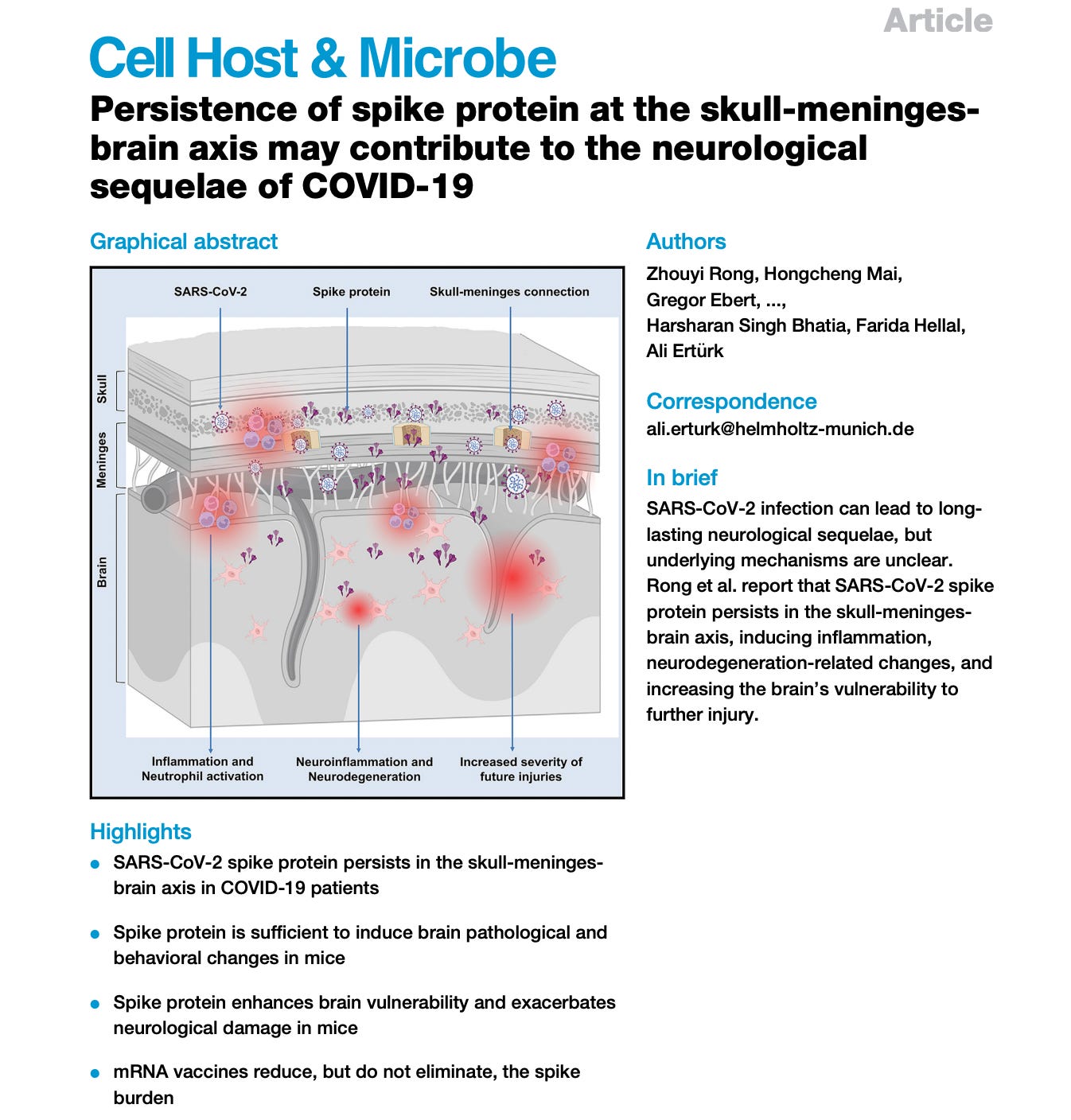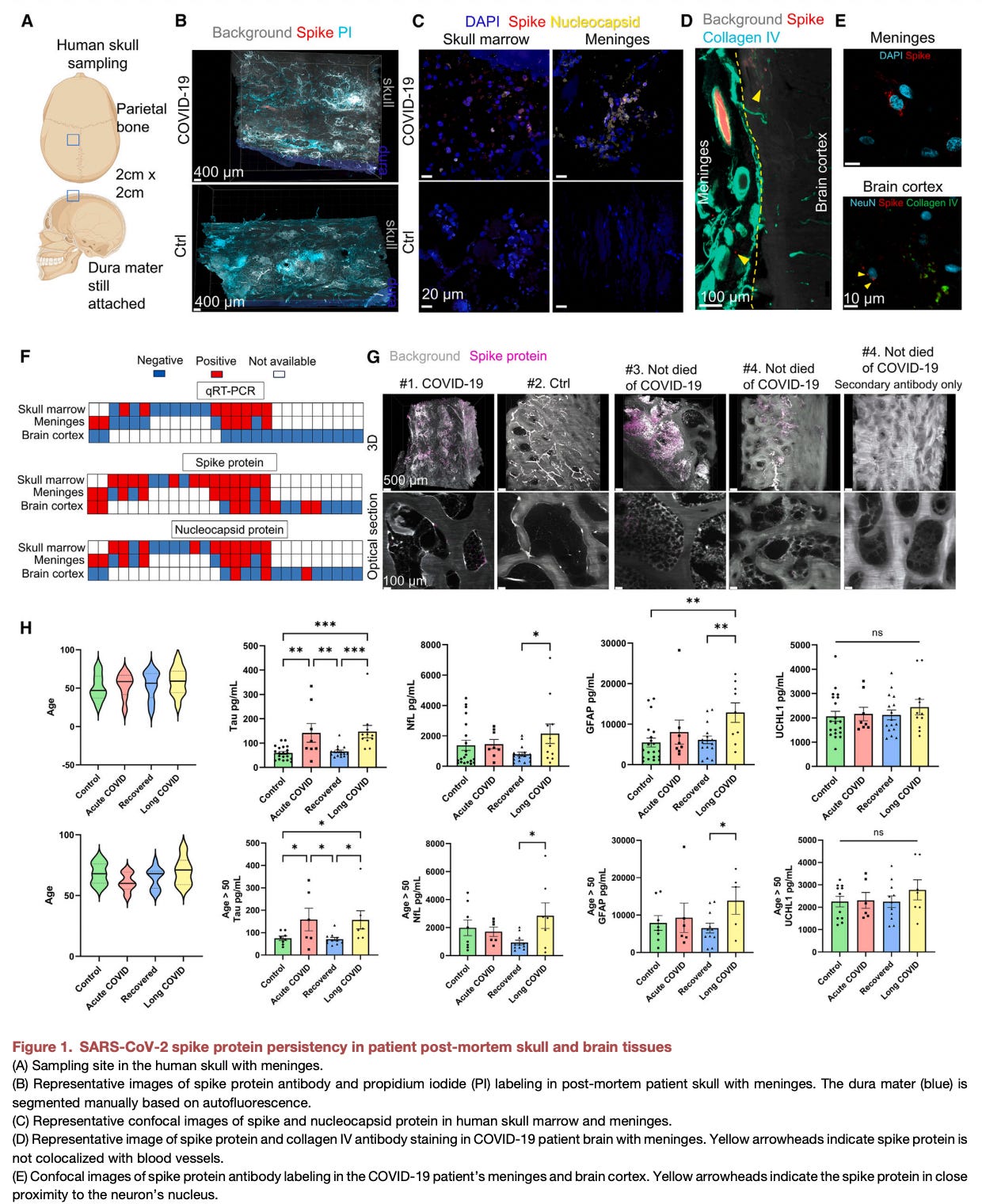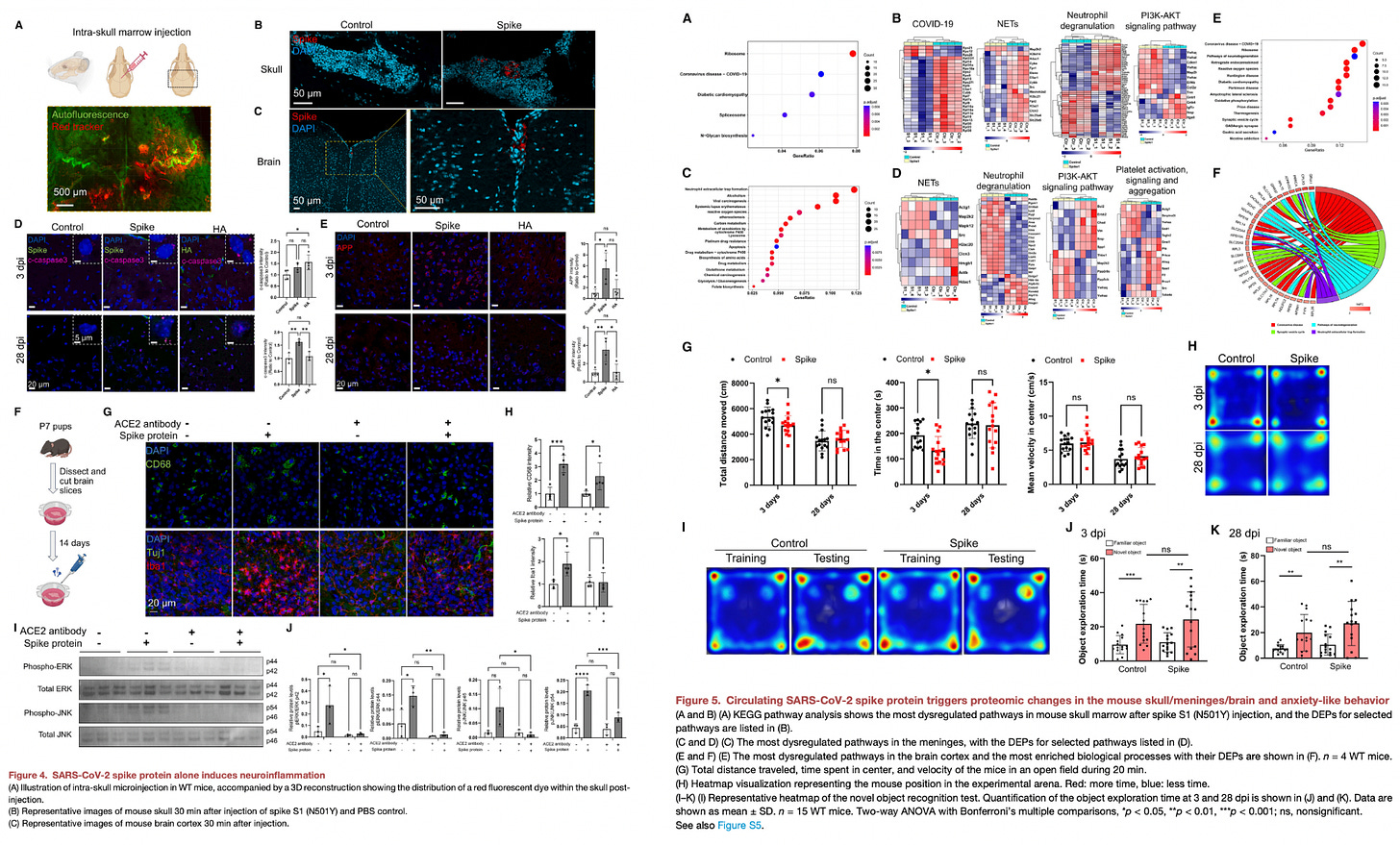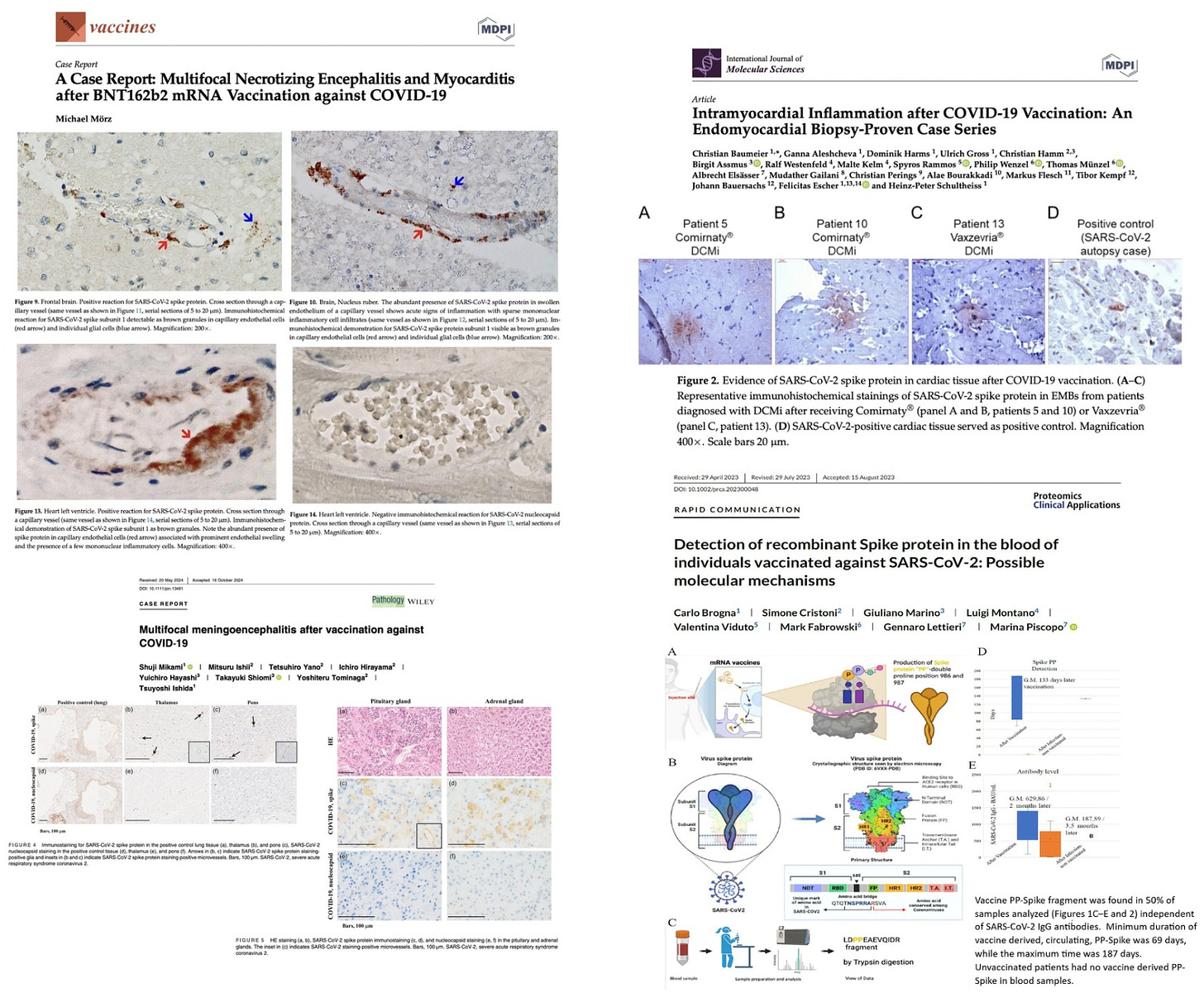SARS-CoV-2 Spike Protein Persists in the Skull-Meninges-Brain Axis and Causes Neurological Damage
New study confirms that the Spike protein is a persistent neurotoxin.
By Nicolas Hulscher, MPH
Rong et al has just published a study in the journal Cell Host & Microbe titled, Persistence of spike protein at the skull-meninges brain axis may contribute to the neurological sequelae of COVID-19:
Using optical clearing and imaging, Rong et al observed the accumulation of SARS-CoV-2 Spike protein in the skull-meninges-brain axis of human COVID-19 patients, persisting long after viral clearance:
The authors injected only Spike protein both intravenously and into the skull marrow of mice, which were sufficient to induce neuroinflammation, proteome changes in the skull-meninges-brain axis, anxiety-like behavior, and exacerbated outcomes in mouse models of stroke and traumatic brain injury:
The authors concluded that persistent Spike protein at the brain borders may contribute to lasting neurological sequelae of COVID-19. These findings corroborate Parry et al and Hulscher et al, who both demonstrated that Spike protein is a persistent, highly toxic substance from both viral infection and vaccination. Vaccine-encoded spike protein differs from the viral version by the replacement of the amino acids lysine and valine with two or six proline amino acids, which stabilizes the spike conformation in the full-length prefusion state. Spike protein from the virus is cleaved at the S1/S2 boundary, thus causing smaller fragments. Autopsies performed after COVID-19 vaccine-induced death reveal widespread dissemination of vaccine Spike protein with no nucleocapsid in various tissues and organs:
Neurotoxic Spike protein residing in the brain helps to explain the concerning findings of Kim et al, who found that COVID-19 vaccination is associated with a 68.3% increased risk of depression, 43.9% increased risk of anxiety disorders, and 93.4% increased risk of sleep disorders:
Using mRNA to hijack cells in various organ systems to produce a highly toxic protein that persists in the body for months to years was one of the worst ideas in human history.
Nicolas Hulscher, MPH
Epidemiologist and Foundation Administrator, McCullough Foundation
www.mcculloughfnd.org
Please consider following the McCullough Foundation and Nicolas Hulscher on X (formerly Twitter) for further content.









